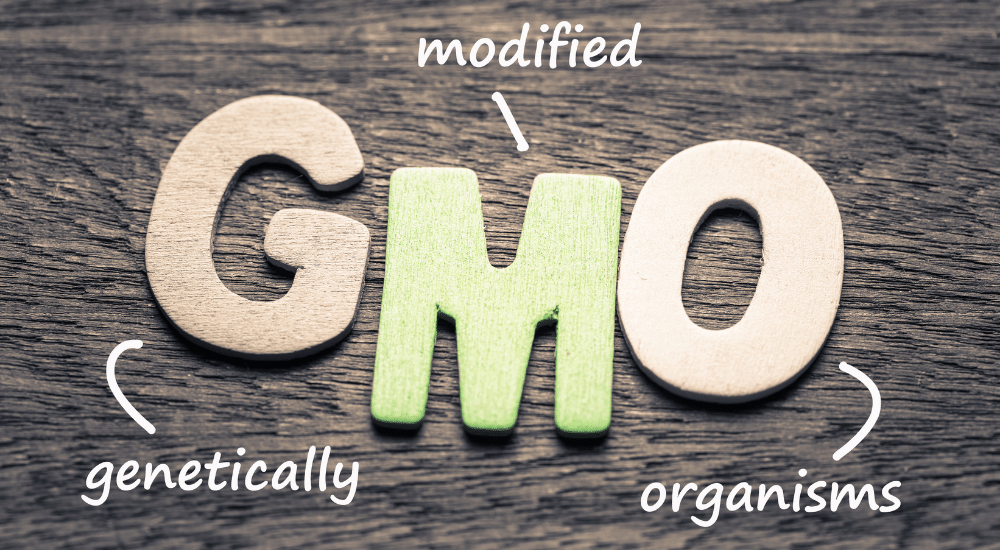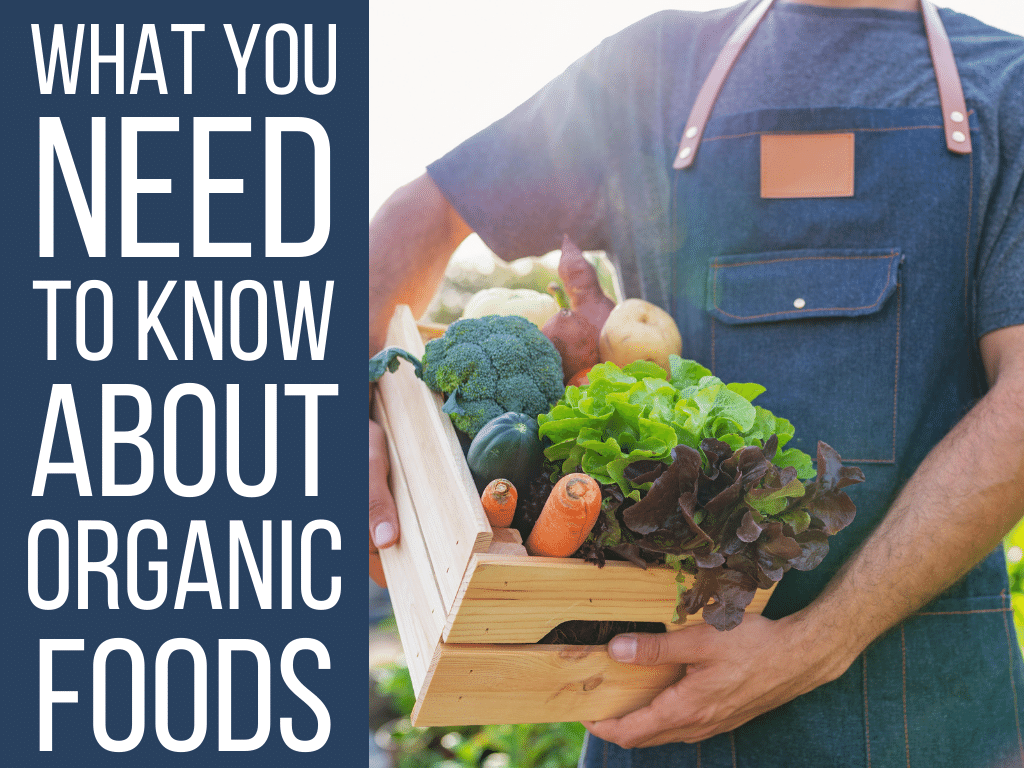Are organic foods really healthier? Is it worth the cost? Learn what the labels mean so you can choose the best foods for the most money.
what does the term “organic” refer to?
Organic refers to how agricultural products are grown and processed. Although regulations may vary from one country to another, USDA labeling requires that organic foods be grown without synthetic pesticides or herbicides.
Organic livestock that is raised for meat, eggs, and dairy products must be kept in conditions that allow them to maintain their natural behavior (such as being able to graze on grass) and fed organic feed. They cannot be given antibiotics or growth hormones.
| Organic vs. Nonorganic | |
| Organic produce | Conventionally-grown produce: |
| Use natural fertilizers such as manure and compost. | Use synthetic or chemical fertilizers. |
| You can control weeds naturally by crop rotation, hand weeding, and mulching, or by using organic-approved herbicides. | Chemical herbicides can be used to control weeds. |
| Natural methods are used to control pests (birds, insects, and traps) as well as naturally-derived pesticides. | Synthetic pesticides can be used to control pests |
| Organic meat, dairy, and eggs | Conventionally-raised meat, dairy, eggs |
| All organic, hormone-, and GMO-free feed is given to livestock. | For faster growth, livestock is fed growth hormones as well as GMO-free feed. |
| Natural methods like clean housing, rotational grass cutting, and healthy eating can prevent disease. | To prevent livestock diseases, antibiotics and medication are used. |
| Access to the outdoors is essential for livestock. | The outdoors may be available to livestock. |
organic foods have many benefits
Your mental and emotional well-being, as well as that of the environment, can be affected by how your food is raised. People with allergies to chemicals or foods may notice a decrease or disappearance of symptoms when organic foods are consumed. Organic foods can often contain more nutrients than conventionally grown foods. Needless to say, the amount of nutrition in food matters.
Organic produce is less pesticide-laden. Pesticide residues can remain in the food we eat.
Organic food is fresher because it doesn’t have preservatives which make it last longer. Sometimes organic produce is produced in smaller farms closer to the place it will be sold.
Organic agriculture tends to be more sustainable. It is better for the environment, birds, and animals that live near farms than it is for people.
Organically-raised animals are not given growth hormones or antibiotics. The use of antibiotics may also lead to antibiotic-resistant strains. Organically raised animals are more mobile and have access to the outdoors. This helps to maintain their health.
Organic meats and milk may contain more nutrients than conventionally raised meats and milk.
GMO-free organic food is available. GMOs or Genetically Modified Organisms are plants whose DNA has undergone genetic engineering to produce an insecticide or be resistant to them.
locally-grown foods vs organic foods
There is no standard for what “local food” means, unlike organic standards. It could be from your area, your state, or your country. It is possible to buy food at local markets, especially during large parts of the year.
locally grown foods have many benefits
Financial Money stays in the local economy. Instead of going to marketing and distribution, more money goes directly to farmers.
Transportation: The average distance that a meal takes from the farm to your plate in the United States is more than 1,500 miles. Produce must first be picked when it is still young and then “ripened” by gassing after transportation. Foods are also highly processed in factories that use preservatives, radiation, and other methods to preserve them for transport.
Freshness: Local foods are harvested when they are ripe, which makes them more flavorful and fresher.
Although some small farmers may use organic methods, they might not be able or able to afford to get certified organic. Talk to farmers at a farmer’s marketplace to learn more about their methods.

understanding GMOS
GMOs and their effects on the environment and health are a topic of ongoing controversy. GMOs are designed to make crops resistant to herbicides or to produce insecticides. A lot of sweet corn grown in the United States is genetically engineered to resist Roundup herbicide and produce its own insecticide, Bt Toxin.
GMOs can also be found in U.S. crops like soybeans, alfalfa, and squash. They are also common in processed foods such as bread, cereal, and many other breakfast foods. GMOs are most likely to be found in packages containing corn syrup and soy lecithin.
GMOS, pesticides
Since GMOs were introduced, the use of toxic herbicides such as Roundup (glyphosate), has increased by 15 times. The World Health Organization has declared that glyphosate is “probably carcinogenic” to humans, but there are still questions about the health risks associated with pesticide use.
are GMOS safe to eat?
The U.S. Food and Drug Administration (FDA), and biotech companies that have engineered GMOs, insist that they are safe. However, food safety advocates argue that there have never been long-term studies to prove that GMOs are safe. Some animal studies indicate that GMOs can cause damage to internal organs, slow brain growth, and thickening in the digestive tract.
GMOs have been linked with increased food allergies and gastrointestinal issues in humans. Many people believe that altering DNA in animals or plants can increase cancer risk, but the research so far has been inconsistent.
organic means pesticide-free?
One of the main benefits of organic food is its lower pesticide use. However, despite popular belief, organic farms do use pesticides. Organic farms use only naturally-derived pesticides and not synthetic pesticides like those used on commercial farms. Although natural pesticides may be less toxic than synthetic ones, some have been shown to pose health risks. Organic food will reduce your exposure to pesticides.
what are the potential risks associated with pesticides?
Many years of exposure to pesticides has led to a buildup in our bodies. As it is medically called, this chemical “body burden” could cause health problems such as headaches, birth defects, and additional strain on the immune system.
Studies have shown that even low-dose pesticides can increase your risk of certain types of cancer like leukemia, lymphoma, and breast cancer.
The most vulnerable are children and their fetuses to pesticides, as their bodies, immune systems, and brains still developing. Early exposure can cause motor dysfunction, developmental delays, autism, immune system damage, and behavioral disorders.
Pregnant mothers are more at risk because of the additional stress pesticides place on already stressed organs. Pesticides can also be passed from mother to child in the womb and breast milk.
The widespread use of pesticides has also led to the emergence of “superweeds” and “superbugs,” which can only be killed with extremely toxic poisons like 2,4-Dichlorophenoxyacetic acid (a major ingredient in Agent Orange).
is it possible to get rid of pesticides by washing and peeling?
Fresh produce can be rinsed to reduce pesticides, but not completely eliminate them. Sometimes peeling can help, but valuable nutrients often end up in the water. It is best to eat a variety of foods, scrub your produce well, and use organic whenever possible.
organic shopping offers the best value for money
Organic food can be more expensive than conventionally grown food. It is possible to buy organic food if you have some priorities.
know your produce pesticide levels
Certain types of conventionally grown produce have higher pesticide levels than others, so it is best to avoid them. Some are sufficiently low that it is safe to buy organic.
vegetables and fruits where the organic label is most important
The Environmental Working Group is a non-profit organization that analyses the results of U.S. government pesticide testing. Important to know for vegetarians, it has been determined that the following fruits and veggies have the highest pesticide levels. Organics are the best option.
|
|
you don’t need to buy organic fruits and vegetables
These conventionally grown fruits and vegetables, also known as the “Clean 15”, are low in pesticides.
|
|
if you have the funds, buy organic meat, eggs, and dairy
The U.S. may allow industrially raised animals to be fed corn, grains, and antibiotics as well as animal by-products, growth hormones, and pesticides. Both the animals and those who eat their meat, eggs, and milk can suffer from these practices.
Look for beef and dairy products that are “pasture-raised” or 100 percent grass-fed if you have the funds. For chicken, pork, and eggs, opt for “certified organic.” It may be possible to buy lower-quality meats from organically raised animals and still eat organic. For example, you might consider buying organic chicken thighs rather than conventionally raised chicken breasts.

there are other ways you can keep organic food costs within your budget
Visit farmers’ markets. Local farmers often sell their produce at open-air street markets, which are often cheaper than grocery stores.
Sign up for a food cooperative. A food co-op or cooperative grocery store typically has lower prices for members who pay an annual membership fee
Join a Community Supported Agriculture farm (CSA), where individuals and families can purchase “shares”, or bulk produce directly from a local farmer. Local and Organic!
tips for buying organic food
Always buy in season. When fruits and vegetables are in season, they are the cheapest and most fresh. To ensure that you are buying the best food, find out when your produce will be delivered to your local market.
Compare prices. Compare organic products at the farmers’ market, grocery stores, online, and other places (including the freezer aisle).
Organic doesn’t necessarily mean healthy. It is common for food companies to make junk food appear healthy. However, organic baked goods, desserts, and snacks can still be very high in sugar, salt, or fat. It is important to carefully read labels on food.
why is organic food so expensive?
Organic food requires more work because the farmers don’t use chemical fertilizers or pesticides. Organic certification can be costly and organic feed for animals may cost twice as much. Farms that product organic foods are smaller than traditional farms. This means that overhead and fixed costs must be spread across smaller produce volumes, without subsidies from the government.

